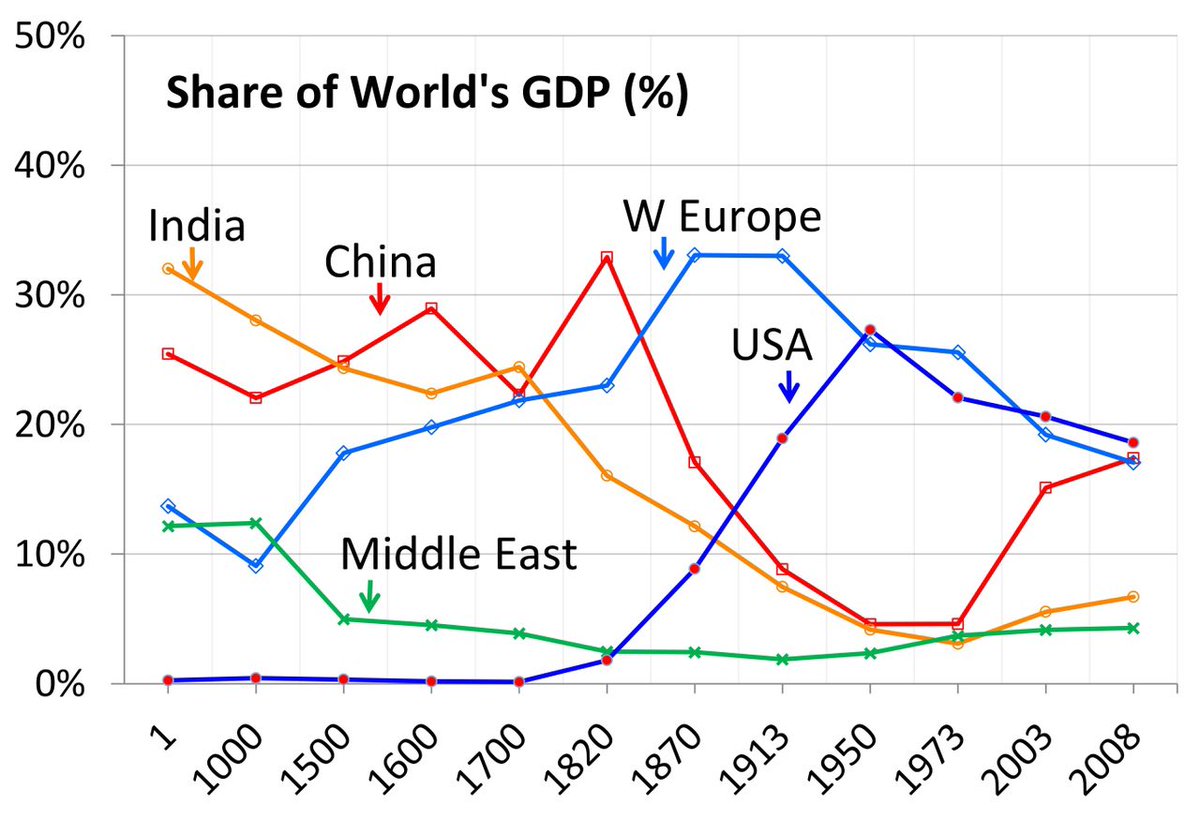
Thousands of years ago, Chinese civilization already had this debate: “individualism vs society.” 🧵
There’s something relevant here, in these conversations from 300 BC, for understanding both 1) East Asia, and 2) America’s failed path.
There’s something relevant here, in these conversations from 300 BC, for understanding both 1) East Asia, and 2) America’s failed path.
https://twitter.com/Solzi_Sez/status/1620209607036764160
Do we even destroy our human relationships, and cannibalize our nation state, all for the sake of individualistic profit?
Or, do we strengthen human relationships, with applied moral philosophy, and then profit as a whole civilization down the road?
Two ways, 二道! /2
Or, do we strengthen human relationships, with applied moral philosophy, and then profit as a whole civilization down the road?
Two ways, 二道! /2
Yang Zhu was essentially Milton Friedman “the only moral responsibility (of business) is profits for ourselves.” But how did that work? That philosophy of selfishness was that of the Warring States, which was a time of war and chaos lasting hundreds of years. /3
In the end, no matter how much profit and innovation such a quick path delivers, it’s irrelevant if the civilization collapses (because then profits and innovation also collapse). What matters, in sino-thinking, is survival across time, which requires tending to the mean (中). /4
And so, that extremist philosophy of “profit me” was finally vanquished by Mengzi et al (Confucians), and the rest is history. Fast-forward to modern China and this lesson remains. In fact, it’s right there in the official name: 社會主義 “society doctrine.” /5
Although a capitalist system can be used to benefit the people, there is a deep cultural lesson in the words of Mengzi and others on where rabid individualism leads if allowed far from the mean: 天下大亂, “all under heaven in utter chaos.” /6
Meanwhile, Americans actually still cheer the root of that chaos, a chaos which is now upon them…and force WWIII in hopes of giving their failed system extended life…which puts the world in chaos.
We’re in a “Reversed Great Learning.”
#無大學 = #Barbarism 7/7
We’re in a “Reversed Great Learning.”
#無大學 = #Barbarism 7/7
• • •
Missing some Tweet in this thread? You can try to
force a refresh







